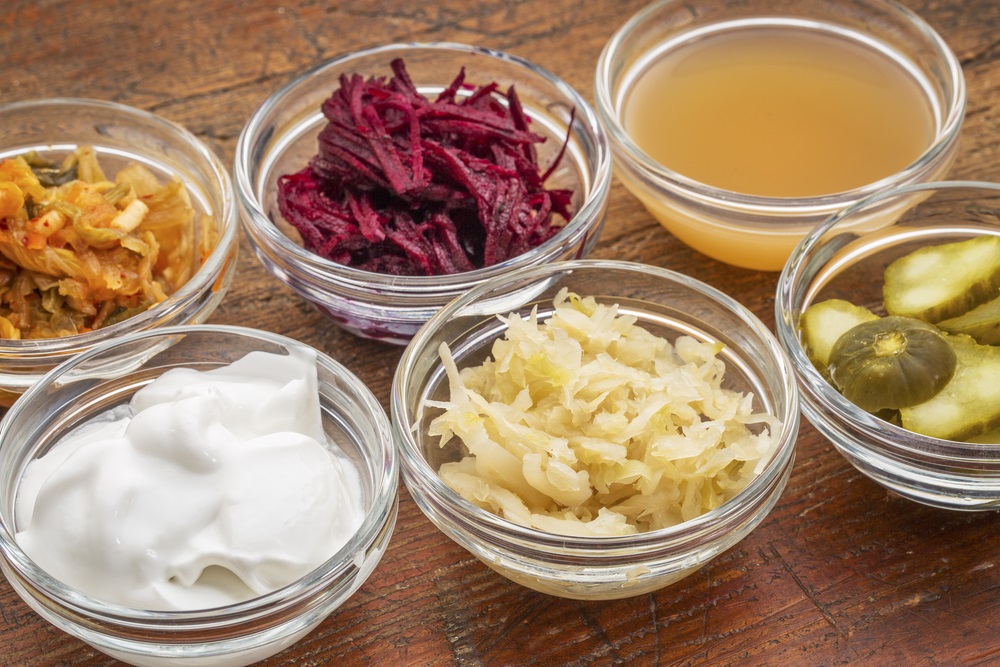Mailbag: A Healthy Gut Helps a Lot… but Not Everything
Dr. Phil Roberts|February 21, 2020

Editor’s Note: We received a lot of feedback on our two-part series about probiotics (catch up here and here). So Dr. Roberts is back to pick up where he left off and answer your questions. And stay tuned until the end because he’s also got an important announcement about our growing health mission. Don’t miss it.
It’s almost impossible to overstate the importance of maintaining a healthy gut.
Humans are incomplete without it.
If we deprive our gut of what it needs to flourish, we’re doing damage to our immune system… vascular system… and nervous system… and thanks to the recently discovered gut-brain axis, we now know it can impact our cognitive function as well.
In fact, it’s almost pointless to talk about a wide variety of health topics today without touching on the role the gut microbiota plays and how a healthy gut can be beneficial.
So what makes a gut healthy?
It’s all about diversity. The more variety of healthy bacteria you have in the gut, the better it is at its many jobs.
You can do this through diet by eating probiotic-rich fermented foods, like yogurt and kimchi.
Or you can use a simple “cheat” by adding a probiotic supplement into your daily regimen.
But as I noted a few weeks ago, adding the beneficial bacteria to the gut via probiotics is only half the equation. Like all living organisms, they need fuel. And that’s where prebiotics come in.
This is the food that helps our gut microbiota thrive.
With that, I’d like to address an important question from a reader about those living organisms found in probiotic supplements.
What about refrigeration? A lot of probiotics are sold at room temperature but some are sold refrigerated and it’s suggested they be kept in the fridge. Is there a difference and is one better than the other? Also, can men and women take the same kind or are they gender specific? – Reader S.P.
Let’s start with the first question. Improper storage can cause a major loss of bacteria.
In fact, probiotic manufacturers factor this in. A product you find on the shelf that says it has 10 billion colony-forming units (CFUs) probably started off with around 15 billion.
And a lot of probiotic bacteria are very fragile…
Some strains, like Bifidobacterium adolescentis and Saccharomyces boulardii, often don’t survive the transportation and storage process.
That said, supplement makers have gotten much better at developing methods of sustaining the life of these bacteria from the manufacturing process through delivery. But the process is far from perfect.
All things created equal, there is a much greater likelihood that a refrigerated probiotic will have a higher survival rate of beneficial bacteria… and in turn be able to make its way to your intestines and do its work.
But even if you pick up a room-temperature probiotic, it makes sense to store it in the fridge once you get it home.
As for gender-specific probiotics… they make total sense (and aren’t just a marketing gimmick).
Men and women experience digestive issues very differently.
Our hormone levels are different.
We require different levels of nutrients.
So yes, a gender-specific general probiotic will have different strains of bacteria that are more beneficial and helpful for your body.
Looking at the Root
But probiotics are not a cure-all… at least not yet.
Case in point…
My wife uses ibuprofen every night to sleep. She occasionally has stomach issues due to the side effects. Is it possible for her to take a particular probiotic to counteract this side effect? She has tried to not take them; however, her arthritis is so bad she is unable to sleep without them. Any advice is helpful and appreciated. – Reader J.J.
This sounds like the classic tale of the lady who swallowed a fly… and then swallowed a spider to catch the fly… and then a bird to catch the spider. You know the old nursery rhyme, right?
An upset stomach is a common side effect of taking ibuprofen… but taking it every day can lead to much more serious issues. It’s estimated that NSAIDs cause nearly 103,000 hospitalizations every year and 16,500 deaths.1 Stomach bleeding, ulcers… It’s nasty business.
Instead of addressing the stomach issues, it makes more sense to start at the root cause… the fly, if you will.
While there’s no cure for arthritis, hormone levels are known to play a major role in the severity of arthritis symptoms… specifically low testosterone.
It makes sense to have hormone levels checked regularly to see if T levels are in the normal range.2 A boost of testosterone can help reduce skeletal pain.
A natural anti-inflammatory like curcumin can be a big help too. Just be sure to check with your doctor first to make sure there are no potential negative interactions with any medications you may be on. I normally recommend 450 milligrams of this twice – once in the morning and once at night. It could dramatically reduce arthritis symptoms.
It’s also vital to stay active… even just for a few minutes a day (click here for a simple solution). This will decrease bone loss and help control swelling and pain. It also replenishes the lubrication in the cartilage of the joint, which helps reduce inflammation and pain.3
Now, without knowing what kind of stomach issues we’re talking about, it’s hard to say whether a probiotic will help or not. If the pain is from internal bleeding or an ulcer, a probiotic won’t help. However, if the stomach issues are related to ulcerative colitis (another side effect of NSAIDs) it could be very helpful. Escherichia coli and the combination of bifidobacterium, lactobacillus and streptococcus have been shown to cause remission in ulcerative colitis.
With all of the cutting-edge research looking at the benefits of a healthy gut, it wouldn’t surprise me at all if the cure for arthritis were found there someday soon.
A Ringing Endorsement
For sure, prescription and over-the-counter medications can do a real number on our gut (not to mention the rest of our body). But one reader chimed in with the success they’ve had with prebiotics after a course of antibiotics…
I’ve had some gut problems over the past few years ever since I was administered Levofloxacin in a hospital ER. I generally reject antibiotics unless absolutely necessary. Recently I started to use a prebiotic supplement and have had no problems since. It is purported to provide nutrition for the “good” organisms as well as inhibit the “bad” organisms. Any comments, either good or bad? – Reader M.K.
Right on and keep it up!
That’s exactly what prebiotics are supposed to do. They feed the healthy bacteria in the gut what they need to do their job.
My only suggestion is that you pair that with a probiotic to maximize what’s called the synbiotic effect.
This one-two punch will ensure your gut is healthy and has well-diversified gut microbiota.
See You on the Other Side
And now for news of a different variety…
This is the last you’ll be hearing from me and my colleague Dr. Sanjay Jain on the pages of Manward Digest.
But we’re not saying goodbye.
We’re simply moving! We’ll be sharing our tips and solutions for better health in Manward’s growing health newsletter, Practical Health Today.
It’s a free daily dose of health news delivered to your inbox six days a week.
So if you haven’t already, be sure to sign up by clicking here.
We’ll see you there!



